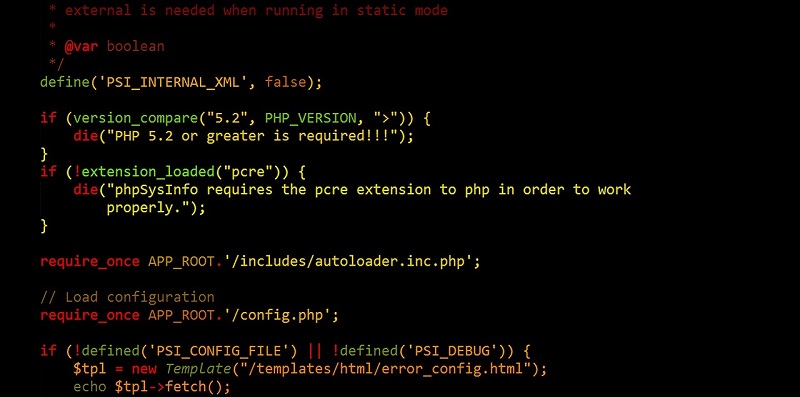In today’s fast-paced business environment where technology plays a pivotal role, startups constantly strive to deliver high-quality software efficiently and effectively. This is where DevOps comes into the picture. DevOps, a portmanteau of Development and Operations, is not just a buzzword but a transformative approach that integrates these two critical functions within a business. Let’s delve deeper into the realm of DevOps and explore how it streamlines development and operations processes, fosters collaboration, and drives continuous improvement.
The primary goal of DevOps is to streamline development and operations processes
At the heart of DevOps lies the primary objective of streamlining the development and operations processes, aligning them towards a common goal: delivering high-quality software. By breaking down the traditional silos that often exist between development and operations teams, DevOps ensures that these functions work harmoniously together. This collaborative approach eliminates bottlenecks, minimizes handoffs, and accelerates the entire software development lifecycle.
Implementing CI/CD pipelines in DevOps
A core tenet of DevOps is the implementation of Continuous Integration and Continuous Deployment (CI/CD) pipelines. CI/CD enables startups to automate the building, testing, and deployment of software, reducing the time-to-market significantly. With CI/CD pipelines in place, developers can automatically merge their code changes into a shared repository, triggering an automated build and testing process. This automation ensures that software is constantly being tested and deployed, enabling a rapid and efficient feedback loop.
Cultivating collaboration and communication in DevOps teams
DevOps fosters a culture of collaboration and communication among cross-functional teams. It breaks down the traditional barriers between developers, operations personnel, and other stakeholders involved in the software development process. Through open channels of communication, DevOps teams can effectively share knowledge, exchange ideas, and collectively work towards delivering value to customers. This collaborative mindset fosters a sense of unity and shared responsibility for the success of projects.
The cultural shift brought by DevOps
Beyond the technical advantages of DevOps, it introduces a cultural shift within startups—an culture of continuous improvement and learning. In a DevOps environment, failure is not seen as a setback, but rather an opportunity for growth and improvement. Startups embrace a mindset of experimentation, where they iterate and learn from their mistakes. This culture instills an attitude of resilience and adaptability, enabling startups to stay ahead of the curve in a rapidly evolving market.
Promoting a learning-oriented environment in DevOps teams
DevOps promotes a learning-oriented environment where team members are encouraged to acquire new skills and stay updated with industry trends. By providing opportunities for continuous learning and professional development, startups can nurture a highly skilled and motivated workforce. This not only enhances employees’ expertise but also keeps the organization at the forefront of technological advancements.
Automation in DevOps
Automation is a cornerstone of DevOps, and it extends beyond technical processes. While CI/CD pipelines automate the software build, test, and deployment processes, there are various administrative tasks, documentation, and reporting that can also be automated. By automating these repetitive and time-consuming activities, startups can free up valuable time and resources, allowing teams to focus on more value-added tasks.
Proactive problem-solving in DevOps
DevOps encourages a proactive approach to problem-solving. Instead of waiting for problems to escalate and impact the software delivery process, DevOps teams address issues promptly and implement solutions swiftly. By leveraging real-time monitoring and automated alert systems, startups can detect and troubleshoot potential issues before they become critical. This agile problem-solving approach minimizes downtime and ensures a seamless software delivery experience.
Breaking down barriers between development and operations teams in DevOps
DevOps breaks down the traditional barriers between development and operations teams. This improved collaboration fosters a sense of unity and shared responsibility for the success of projects. Developers gain a deeper understanding of operational considerations, while operations personnel develop a comprehensive understanding of the development process. By working together, they can collectively identify and address potential bottlenecks, resulting in efficient and seamless software delivery.
Customer-driven approach in DevOps
In a DevOps culture, startups are driven by customer feedback and market demands. Continuous improvement means that products and services are refined based on real-time feedback, ensuring they meet the evolving needs of customers. By gathering insights from user behavior and monitoring customer satisfaction, startups can make data-driven decisions to enhance their offerings. This customer-centric approach not only boosts customer satisfaction but also strengthens the startup’s competitive advantage in the market.
DevOps is not just a buzzword, it is a transformative approach that empowers startups to achieve operational excellence, seamless collaboration, and continuous improvement. By streamlining development and operations processes, fostering a collaborative culture, and embracing automation, startups can accelerate time-to-market, boost quality, and gain a competitive edge. Through DevOps, startups unlock the potential to thrive in an ever-evolving digital landscape, realigning their focus on delivering value to customers and meeting their ever-changing needs.

